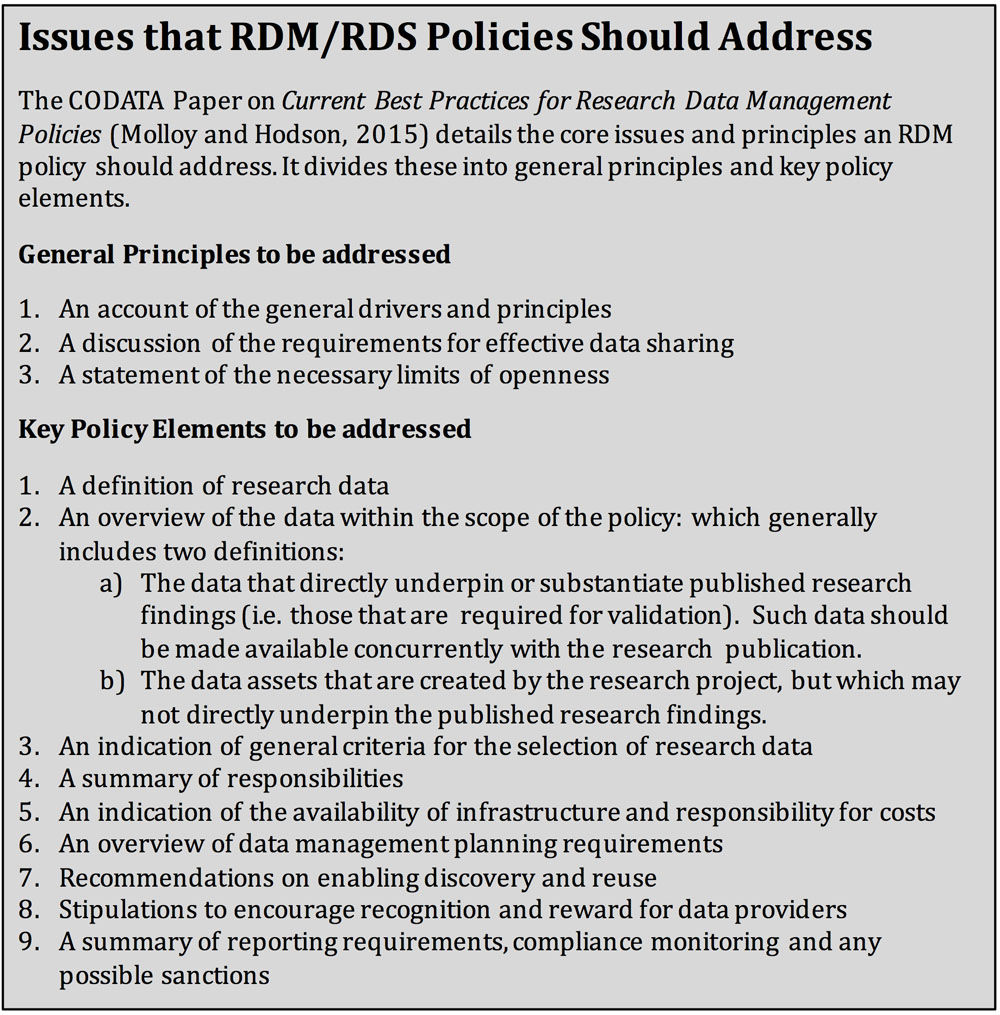Difference between revisions of "Template:Article of the week"
Shawndouglas (talk | contribs) (Updated article of the week text.) |
Shawndouglas (talk | contribs) (Updated article of the week text.) |
||
| Line 1: | Line 1: | ||
'''"[[Journal: | '''"[[Journal:Compliance culture or culture change? The role of funders in improving data management and sharing practice amongst researchers|Compliance culture or culture change? The role of funders in improving data management and sharing practice amongst researchers]]"''' | ||
<div style="float: left; margin: 0.5em 0.9em 0.4em 0em;">[[File:Fig2 Neylon ResIdeasOut2017 3.jpg|240px]]</div> | |||
There is a wide and growing interest in promoting research data management (RDM) and research data sharing (RDS) from many stakeholders in the research enterprise. Funders are under pressure from activists, from government, and from the wider public agenda towards greater transparency and access to encourage, require, and deliver improved data practices from the researchers they fund. | |||
Funders are responding to this, and to their own interest in improved practice, by developing and implementing policies on RDM and RDS. In this review we examine the state of funder policies, the process of implementation and available guidance to identify the challenges and opportunities for funders in developing policy and delivering on the aspirations for improved community practice, greater transparency and engagement, and enhanced impact. ('''[[Journal:Compliance culture or culture change? The role of funders in improving data management and sharing practice amongst researchers|Full article...]]''')<br /> | |||
<br /> | <br /> | ||
''Recently featured'': | ''Recently featured'': | ||
: ▪ [[Journal:A review of the role of public health informatics in healthcare|A review of the role of public health informatics in healthcare]] | |||
: ▪ [[Journal:Preferred names, preferred pronouns, and gender identity in the electronic medical record and laboratory information system: Is pathology ready?|Preferred names, preferred pronouns, and gender identity in the electronic medical record and laboratory information system: Is pathology ready?]] | : ▪ [[Journal:Preferred names, preferred pronouns, and gender identity in the electronic medical record and laboratory information system: Is pathology ready?|Preferred names, preferred pronouns, and gender identity in the electronic medical record and laboratory information system: Is pathology ready?]] | ||
: ▪ [[Journal:Experimental application of business process management technology to manage clinical pathways: A pediatric kidney transplantation follow-up case|Experimental application of business process management technology to manage clinical pathways: A pediatric kidney transplantation follow-up case]] | : ▪ [[Journal:Experimental application of business process management technology to manage clinical pathways: A pediatric kidney transplantation follow-up case|Experimental application of business process management technology to manage clinical pathways: A pediatric kidney transplantation follow-up case]] | ||
Revision as of 16:58, 30 January 2018
There is a wide and growing interest in promoting research data management (RDM) and research data sharing (RDS) from many stakeholders in the research enterprise. Funders are under pressure from activists, from government, and from the wider public agenda towards greater transparency and access to encourage, require, and deliver improved data practices from the researchers they fund.
Funders are responding to this, and to their own interest in improved practice, by developing and implementing policies on RDM and RDS. In this review we examine the state of funder policies, the process of implementation and available guidance to identify the challenges and opportunities for funders in developing policy and delivering on the aspirations for improved community practice, greater transparency and engagement, and enhanced impact. (Full article...)
Recently featured:
- ▪ A review of the role of public health informatics in healthcare
- ▪ Preferred names, preferred pronouns, and gender identity in the electronic medical record and laboratory information system: Is pathology ready?
- ▪ Experimental application of business process management technology to manage clinical pathways: A pediatric kidney transplantation follow-up case










